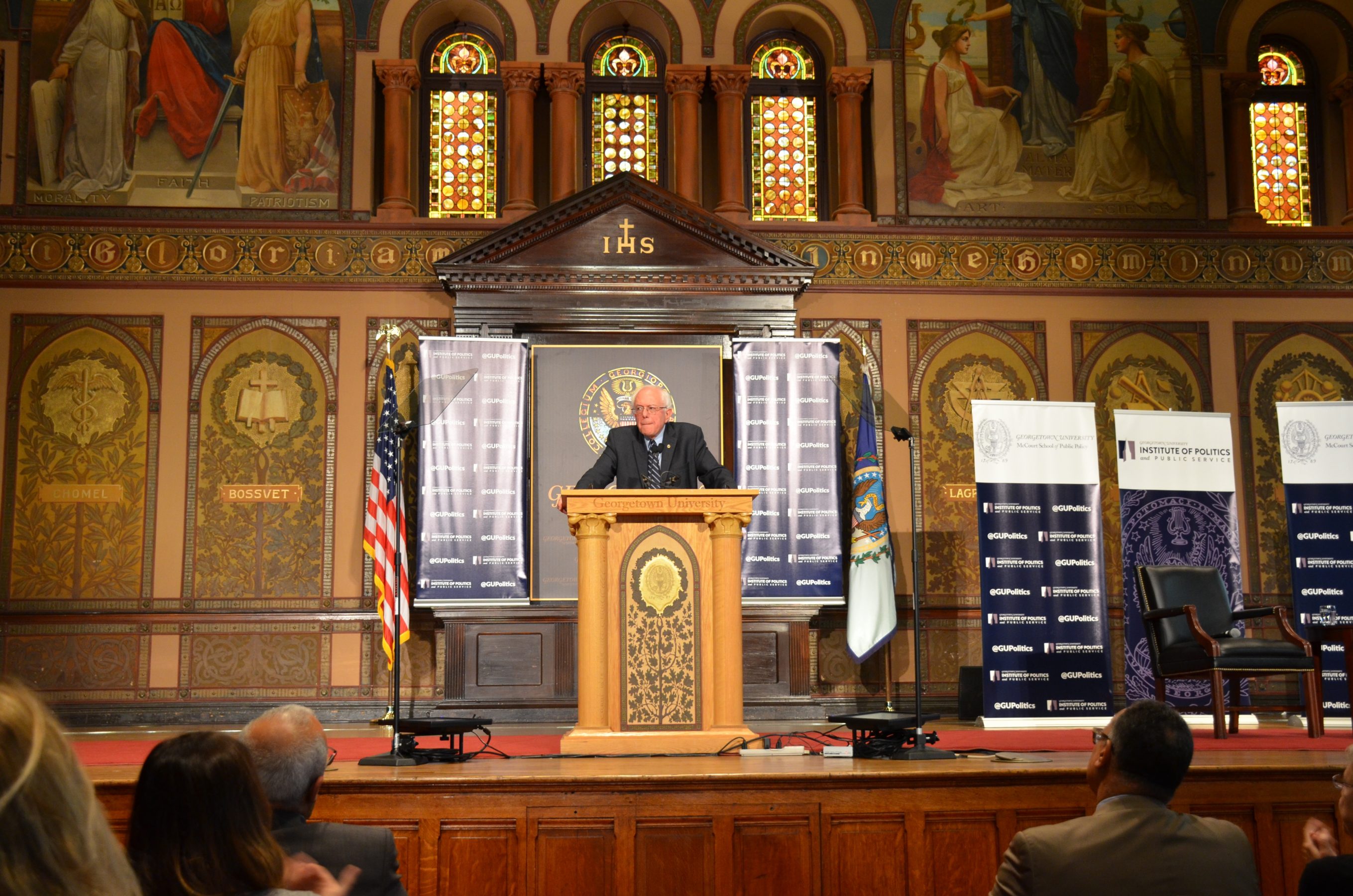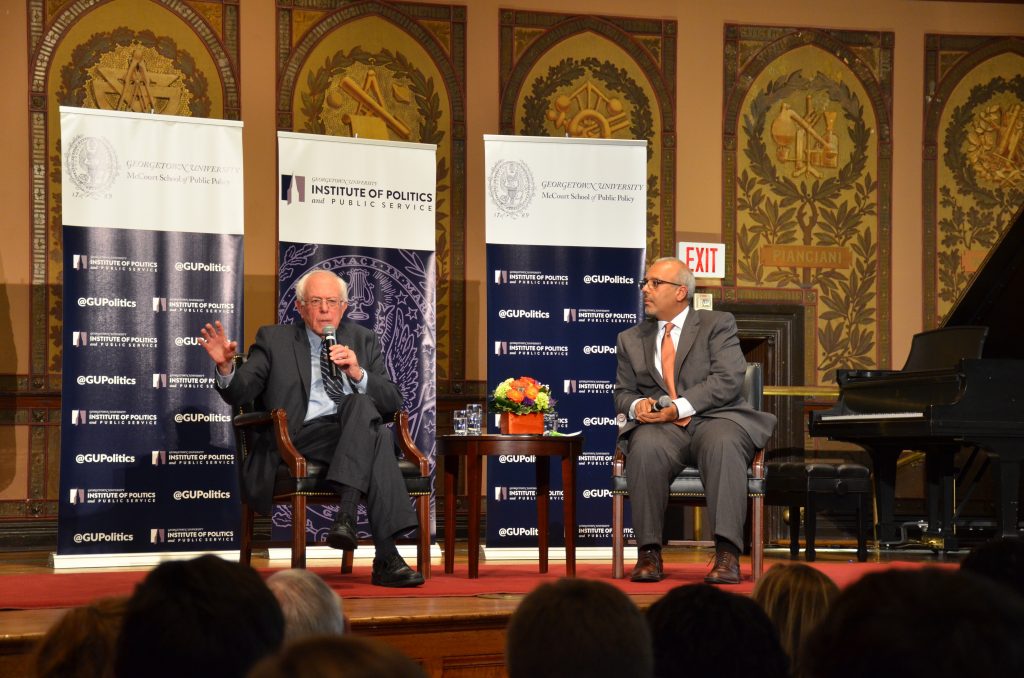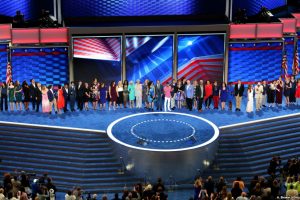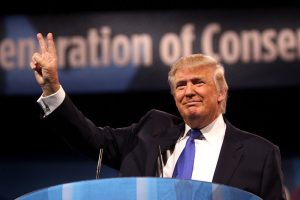2016 Democratic presidential candidate Sen. Bernie Sanders spoke on the topic of democratic socialism on Nov. 19 at Georgetown in an event sponsored by the Institute of Politics and Public Service (IPPS). In his address, Sanders discussed his views and identity as a democratic socialist by examining a number of policy issues, such as income inequality, climate change, and terrorism.
Sanders framed his discussion of democratic socialism by harkening back to President Franklin Roosevelt’s policies during the Great Depression and actions in a time a crisis.
“He redefined the relationship of the federal government to the people of our country. He combatted cynicism, fear and despair. He reinvigorated democracy. He transformed the country,” Sanders said. “And, by the way, almost everything he proposed was called ‘socialist.’”
Sanders focused a large part of his speech on the widening gap between the wealthiest people in the United States and the middle class. He noted how the United States is the wealthiest nation in history but that the top one-tenth of the richest one percent has almost as much wealth as the entire bottom 90 percent of Americans.
According to Sanders, the current system has created an economic and political crisis and continuing without reform will not solve the problem.
“If we are serious about transforming our country, if we are serious about rebuilding the middle class, if we are serious about reinvigorating our democracy, we need to develop a political movement which, once again, is prepared to take on and defeat a ruling class whose greed is destroying our nation,” he said. “The billionaire class cannot have it all. Our government belongs to all of us, and not just the one percent.”
Sanders addressed a number of specific policies based on his ideas of democratic socialism that he would implement as president in order to fight against the gap that he believes exist between rich and poor in the United States. Sanders called for the establishment of healthcare as a right, tuition-free public college, comprehensive parental leave reform, and increased taxes on the wealthiest people and corporations in the United States.
Additionally, given the recent terrorist attacks around the world, Sanders explained how he would approach war and terrorism in the Middle East if elected president.
“I will never hesitate to defend this nation, but I will never send our sons and daughters to war under false pretense or pretenses or into dubious battles with no end in sight,” he said.
Sanders also called on regional powers in the Middle East to take stronger action in fighting the Islamic State group (ISIS). He also explained the need for a new organization, similar to the North Atlantic Treaty Organization (NATO), that unites Western states, the Middle East, and Russia in combating terrorism.
In the discussion with IPPS Executive Director Mo Elleithee (SFS ‘94) in which he answered student questions, Sanders explained the connection between security issues such as ISIS and climate change. He noted the CIA, Department of Defense, and other countries around the world acknowledge that extreme weather events can lead to migration and increase competition for limited natural resources, which in turn can lead to conflict.
“For example, right now in Syria as a result of a sustained drought, people have left the rural areas, flooded into the cities, causing more instability and becoming people who could succumb to extremist propaganda,” Sanders said.
In order to combat climate change, Sanders called for aggressive movement of the energy system away from fossil fuel and into energy-efficient and sustainable technologies.
After the discussion, Elleithee expressed excitement in having Sanders’ address on democratic socialism at Georgetown.
“I think this speech has the potential to be one of the defining moments of the Sanders candidacy,” he wrote in an email to the Voice. “The notion of service towards the common good is baked into the DNA of the university, and GUPolitics was established to engage students in finding ways to make the political process work better for the next generation.”
According to Elleithee, IPPS has invited all major candidates from both parties to speak on campus.
“I know that they’re spending most of their time in Iowa, New Hampshire and South Carolina these days, but they are all welcome to come by and engage with Georgetown students any time they come through D.C.,” he wrote. “Our students get so much out of dialogues like these.”







